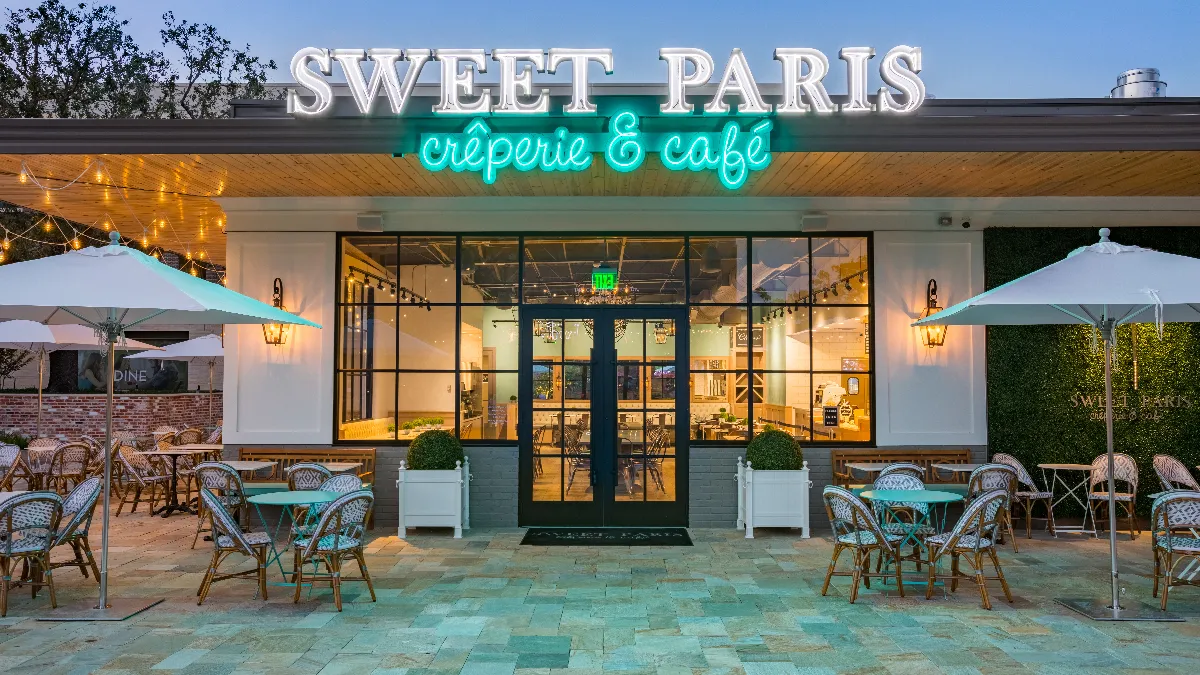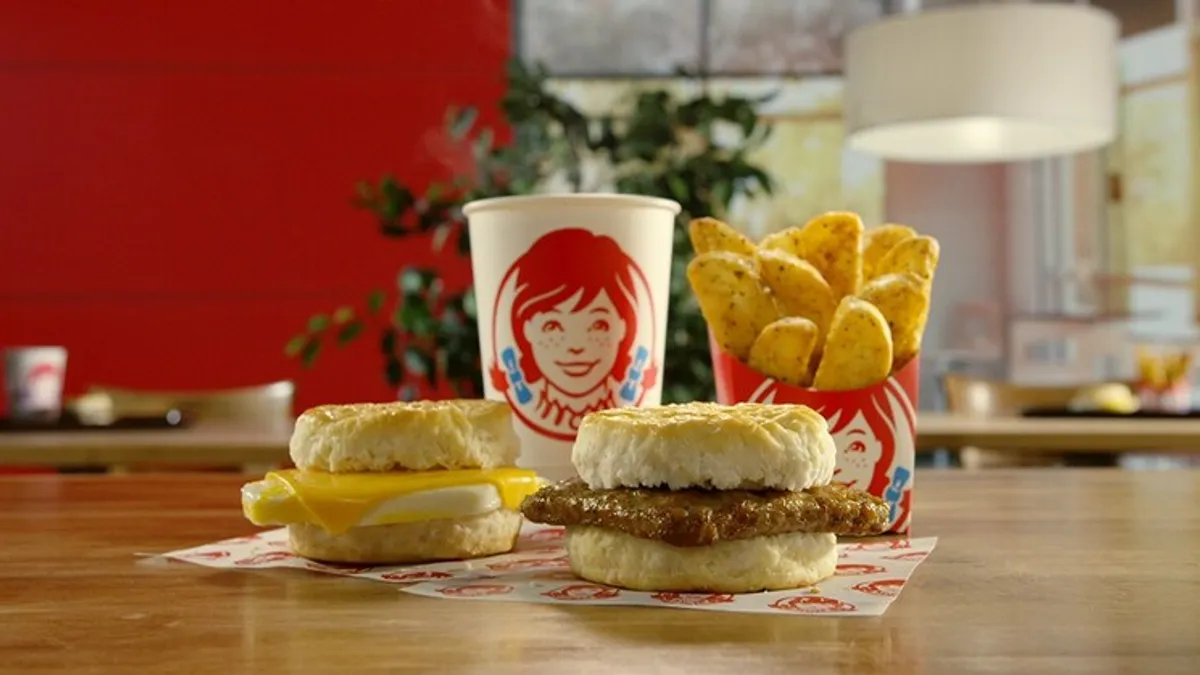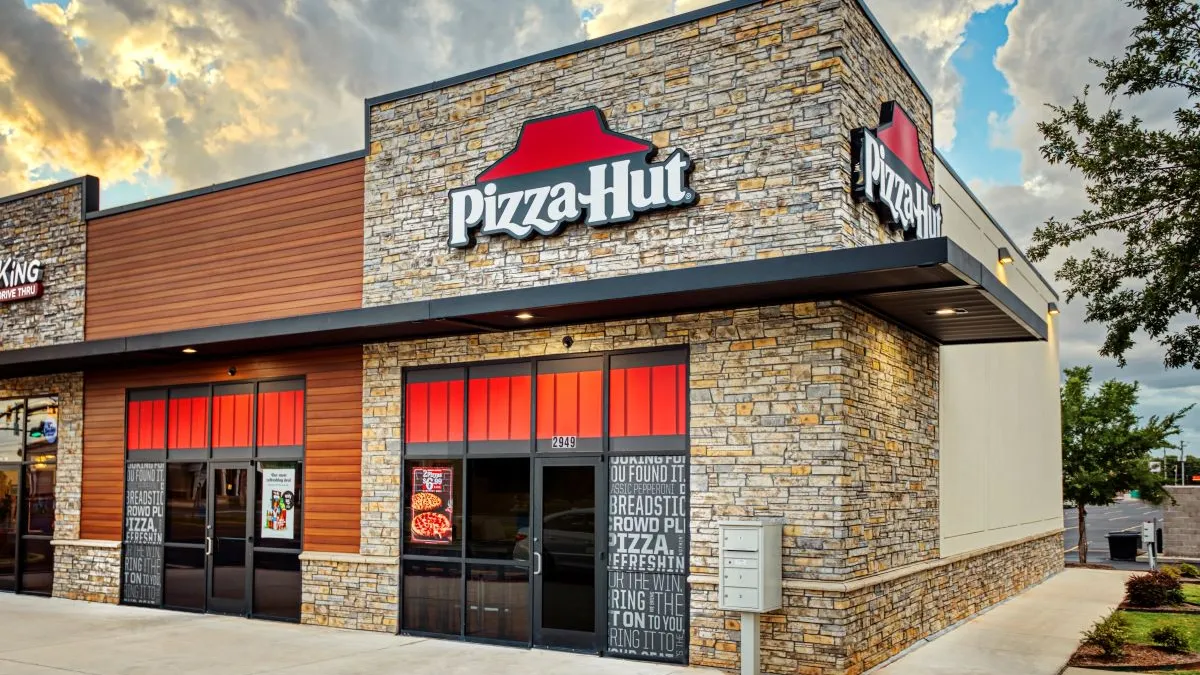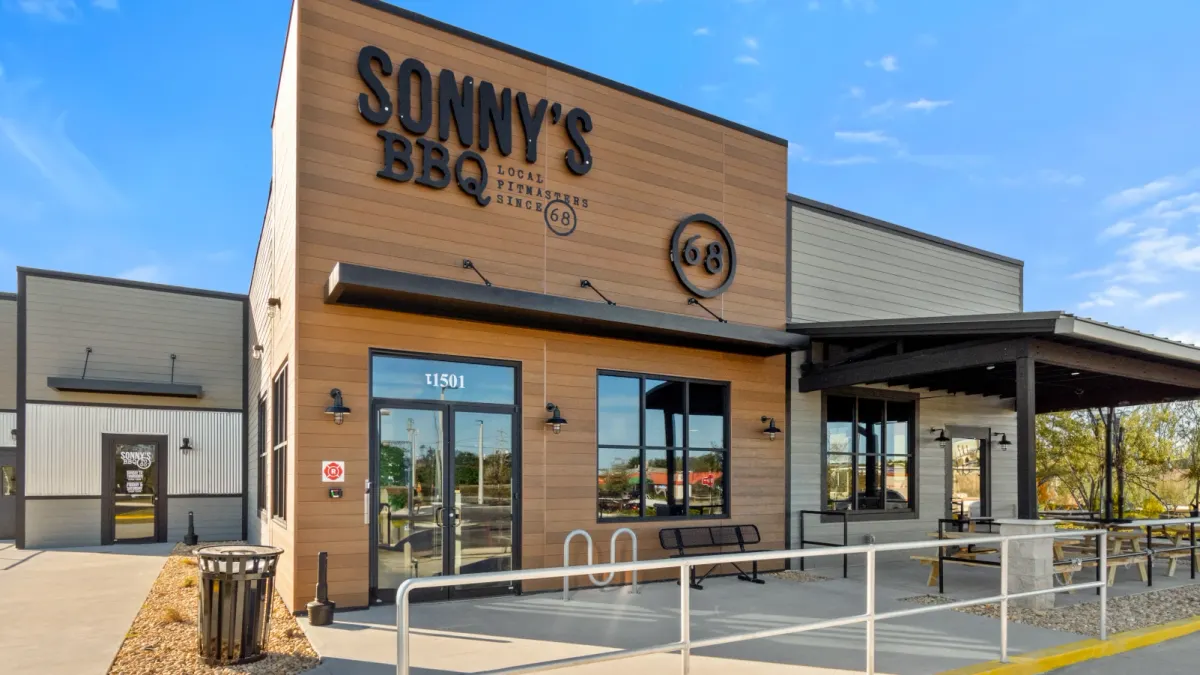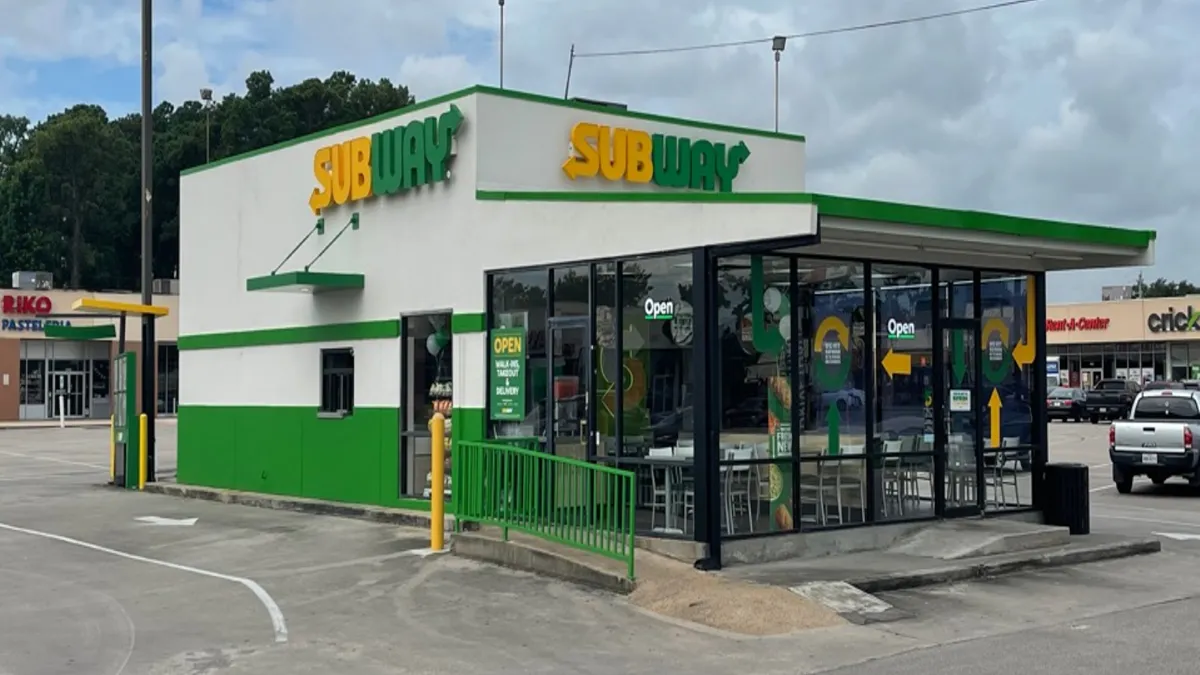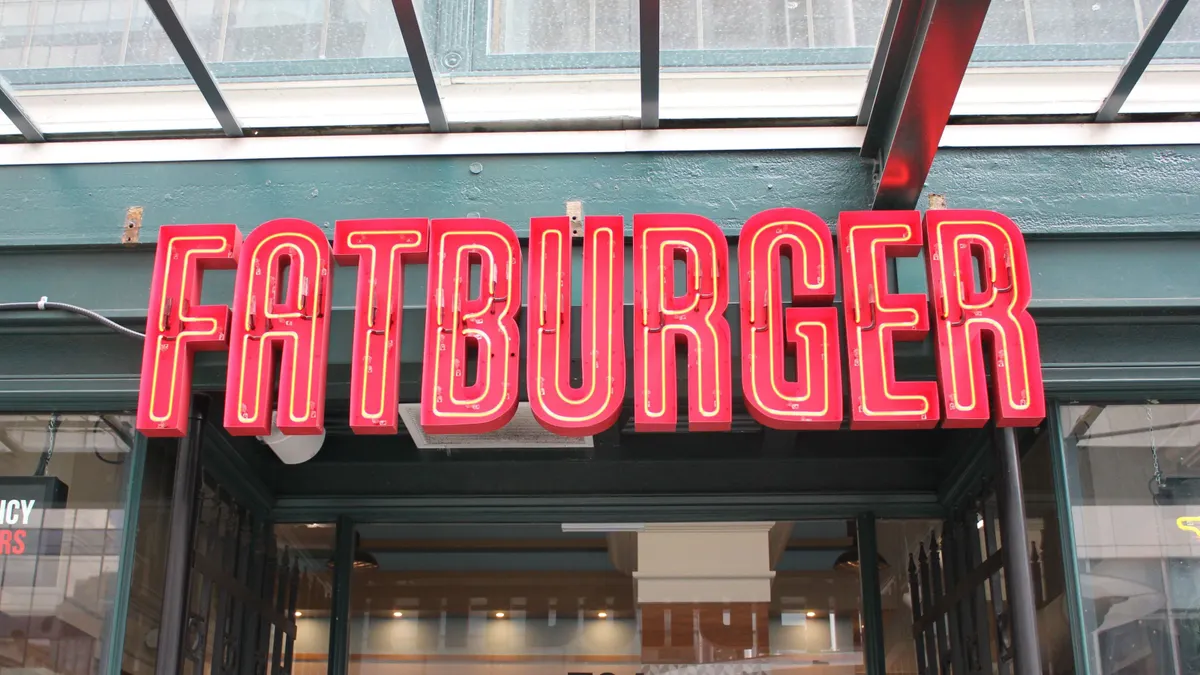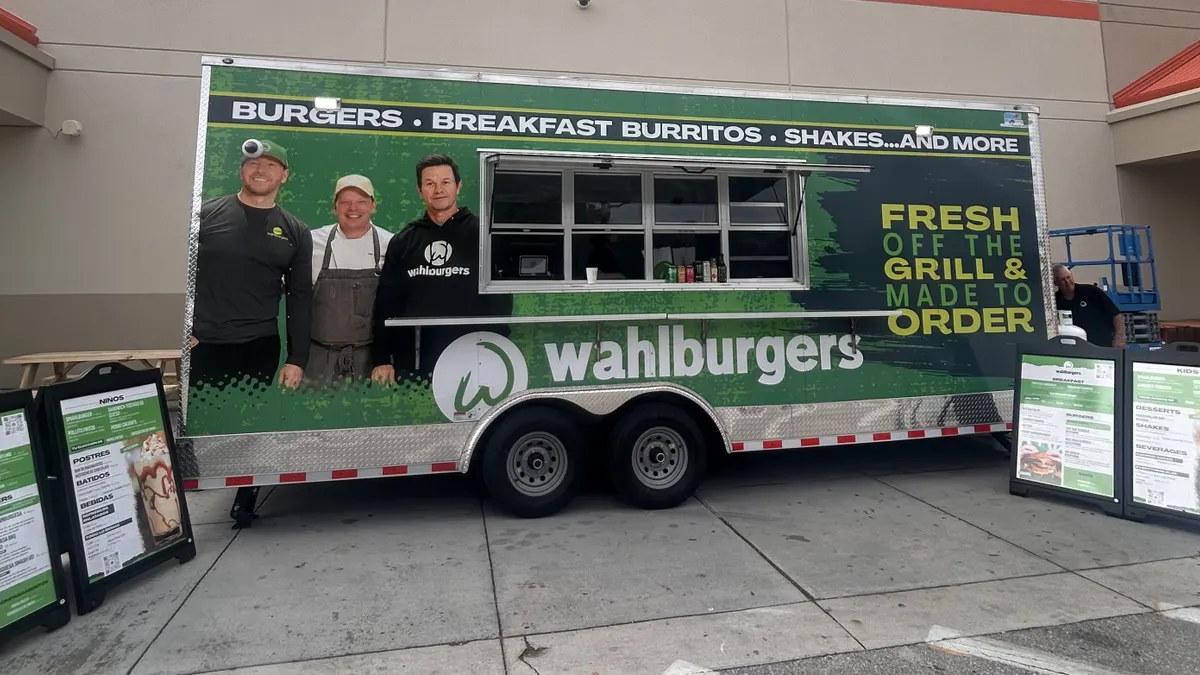Editor’s note: This article is part of an ongoing franchise series, which highlights brands that are new to or aggressively expanding via franchising. Is your restaurant starting to franchise? Email us at [email protected].
Sweet Paris Creperie & Cafe began when a Houston couple, nostalgic for their undergraduate years studying abroad in France, bought a home crepe maker in 2011. Co-founders Allison and Ivan Chavez felt they could cook up a better product than establishments in the area, especially since crepes are a popular dessert in Ivan’s native Mexico, Allison Chavez said.
Seventy different flavors later, the couple had an idea of what would work for the menu and believed their creperie would appeal to young and old diners alike. It took about a year of ideation, site selection and construction for the then 26-year-olds to open their first Sweet Paris location in May 2012, near Rice University in Houston. At the time, Allison was in real estate finance, and Ivan worked in real estate development, but they hired an experienced operator to help run the restaurant, she said.
Sweet Paris has retained its base menu of savory and sweet crepes, but its offerings have evolved. Initially, the restaurant didn’t offer items such as waffles, salads and milkshakes, but they were added over time, Allison Chavez said.
Soon after opening, the Chavezes had lines of customers out the door and knew they needed to tweak their operations to speed up their 30- to 40-minute cook times, Allison Chavez said.
The co-founders turned to technology and additional labor to improve speed of service. The co-founders had relied on baristas to run the registers during high-traffic brunch hours but hired more workers to separate those roles and smooth operations.
Originally, customers ordering savory crepes would need to rejoin the queue if they wanted a dessert crepe as well. But the couple changed their model so staff could put a 10-minute hold on a dessert crepe within its kitchen display system, allowing customers to more easily receive their second crepe, Chavez said.
When the co-founders felt like things were running smoothly at their first restaurant, they opened a second Sweet Paris store in January 2015 in Houston, a year after Allison left her previous career to focus full time on Sweet Paris. In 2017, the couple’s restaurant concept was ready to franchise, she said.
“[Franchising] came out of an organic ask,” Chavez said. “We hadn’t thought about it until our customers were kind of begging for their own Sweet Parises in different suburbs of Houston.”
As Sweet Paris prepared to franchise, the management team compiled details about recipes, stores designs and operational knowledge into a binder to share with future operators to help them recreate the concept. The company employs a full-time franchise consultant in its corporate office to help operators, and corporate management helps franchisees with the real estate process, including site selection, design approvals and layout.
A training team will visit a franchised restaurant two weeks before opening to help train the staff and prepare for a soft opening. Within two days, the company can train a chef on how to make crepes, which makes it easier to hire cooks, since many don’t have experience with this menu item. Chavez said the restaurant also ensured each franchisee offers an “Eat Here, Feed There” crepe, where every purchase goes toward a local food bank.
Sweet Paris uses Toast as its point-of-sales system and Google Drive as a portal for franchisees to review digital information, videos and training guides, Chavez said. All of its processes seem to be working. The 12-unit company experienced 14% same-store sales growth in 2022, according to a press release. The brand has 14 units in the pipeline, three of which will open this year, bringing its footprint to 26 locations.

Development plans: Within eight years, Chavez said she thinks Sweet Paris can reach 100 units throughout the United States. In the short term, the company is filling out current markets, such as Texas, where it will open its first Dallas location in the next two years. The company moved into Florida with its first Miami restaurant in December and plans to grow to Tampa, Florida. She said the chain has signed a deal with a franchisee for four units in Minnesota and has a franchisee commitment for Oklahoma.
Long term, Sweet Paris has its sights on Southern California, the Midwest and the East Coast, such as the Washington, D.C. and Baltimore markets. The company has units in both urban and suburban areas and found that its restaurant concept works well in lifestyle centers within suburban neighborhoods, Chavez said.
Ideal franchisees: Sweet Paris is looking for multi-unit operators with prior restaurant experience in another concept, Chavez said. A prospective franchisee shouldn’t have any competing businesses with waffles or crepes, according to the company’s franchise brochure. The selected operator should be willing to work within one of the company’s target markets, successfully complete a background check and have a minimum of five years of management experience, among other qualifications



